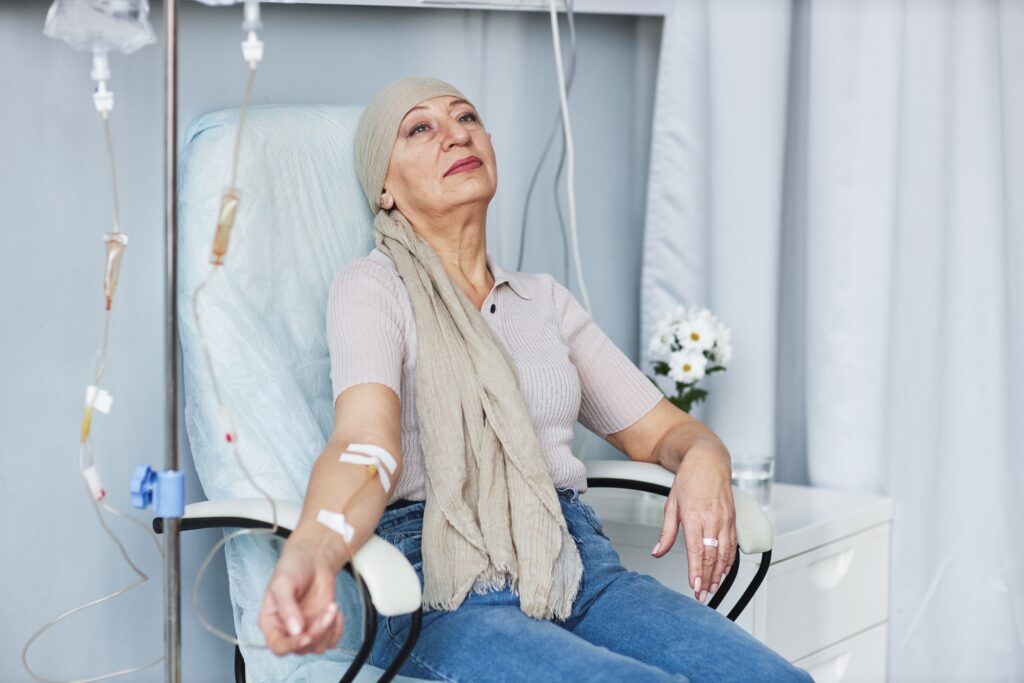Evive Biotech, a leading biopharmaceutical company based in China, and Acrotech Biopharma, a subsidiary of Aurobindo Pharma USA in New Jersey, have jointly announced a major achievement with the US Food and Drug Administration’s (FDA) approval of Ryzneuta (efbemalenograstim alfa) for treating chemotherapy-induced neutropenia (CIN).
This marks a pivotal advancement, as Ryzneuta is the first non-pegylated granulocyte colony-stimulating factor to be approved by both the FDA and China’s National Medical Products Administration (NMPA) for CIN management.
“Acrotech is very excited on the approval of Ryzneuta and is preparing to commercialize the product in the near future. We believe Ryzneuta will offer patients suffering from CIN a very compelling and accessible treatment option. We will leverage our strong and well-established commercial footprint to promote this unique treatment to key stakeholders,” said Dr. Ashish Anvekar, president of Acrotech Biopharma, in Evive Biotech’s press release.
Ryzneuta is designed to decrease the risk of infections, particularly febrile neutropenia, in adults with non-myeloid cancers who are receiving myelosuppressive chemotherapy known to significantly increase the risk of febrile neutropenia. It is administered via a subcutaneous injection using a single-dose, prefilled syringe, a procedure that should be carried out by a healthcare professional.
The drug’s key ingredient, efbemalenograstim alfa-vuxw, serves as a colony-stimulating factor. It targets hematopoietic cells by attaching to specific cell surface receptors, thereby promoting proliferation, differentiation and activation.
Neutropenia, often a side effect of chemotherapy, is defined by lowered levels of neutrophils, key white blood cells crucial in fighting infections. Ryzneuta’s unique structure, a homodimer, consists of two G-CSF-Fc molecules linked by disulfide bonds in the Fc region. Its specific binding to the G-CSF receptor promotes the survival, growth, differentiation and function of both neutrophil precursors and mature neutrophils. By stimulating neutrophil production, Ryzneuta bolsters the immune system’s ability to fight infections. This enhancement is vital in reducing the likelihood of needing to decrease or delay chemotherapy doses, thereby helping to maintain the efficacy of the cancer treatment.
XTALKS WEBINAR: 2024’s Pharma Industry Trends and Digital Innovations
Live and On-Demand: Thursday, February 1, 2024, at 2pm EST (8pm CET/EU-Central)
Register for this free webinar to discover the forces that will impact the pharma industry in 2024 and the solutions you need.
The FDA’s approval of Ryzneuta is backed by substantial clinical data demonstrating its effectiveness. In a pivotal randomized, double-blind, placebo-controlled study (Study GC-627-04), which included patients with either metastatic or non-metastatic breast cancer undergoing chemotherapy with doxorubicin and docetaxel, the efficacy of Ryzneuta was evident. Patients treated with Ryzneuta experienced a significantly shorter mean duration of severe (Grade 4) neutropenia in the first cycle (1.4 days) compared to those given a placebo (4.3 days, p<0.001).
Furthermore, the occurrence of febrile neutropenia (temperature ≥38.3℃ or >38.0℃ for over an hour with an absolute neutrophilic count [ANC] < 0.5 × 109/L) was markedly lower in the Ryzneuta group during the first cycle (4.8 percent vs. 25.6 percent, p=0.0016), highlighting its potential as a reliable treatment option.
“Ryzneuta is a new treatment option that has demonstrated its efficacy and safety building on the comprehensive global development program of Ryzneuta, which includes 12 clinical trials and has enrolled over 1,200 subjects to date in multiple territories including the US, EU [European Union] and China,” said Dr. John Glaspy, principal investigator of the Ryzneuta global clinical trial program and professor of medicine at the Jonsson Comprehensive Cancer Center of the University of California, Los Angeles School of Medicine, in the news release.
Furthermore, clinical trials demonstrated that Ryzneuta had a favorable tolerability profile. The most common adverse reactions (≥10 percent) from Ryzneuta treatment through cycle 1 were nausea, anemia and thrombocytopenia.
In May, Ryzneuta was approved and launched in China. With expectations of additional regulatory clearances, it is set to become a key first-line treatment and an alternative option for cancer patients globally. As of now, the companies have not released pricing information for Ryzneuta. However, for context, a similar drug such as pegfilgrastim typically costs about $3,500 per dose.
Other FDA-Approved CIN Treatments on the Market
The FDA has approved multiple drugs for treating CIN, including Spectrum Pharmaceuticals’ Rolvedon (eflapegrastim), which received FDA approval last year. In Phase III clinical trials, Rolvedon was shown to be effective. Among patients treated with Rolvedon (n = 196), the incidence of severe neutropenia in the first cycle was 15.8 percent, lower than the 24.3 percent observed in patients who received pegfilgrastim (n = 210). This represents an 8.5 percent absolute risk reduction and a 34.9 percent relative risk reduction, highlighting its potential as an effective treatment for CIN.
In 2022, Amneal Pharmaceuticals received FDA approval for Fylnetra (pegfilgrastim-pbbk), a biosimilar aimed at treating or preventing febrile neutropenia in chemotherapy patients. This marked Amneal’s third biosimilar approval in that year within the oncology sector, a significant category in the US market. Earlier, Amneal had gained approval for two other biosimilars: Releuko (filgrastim-ayow), which is similar to Neupogen, and Alymsys (bevacizumab-maly), a biosimilar of Avastin.












Join or login to leave a comment
JOIN LOGIN